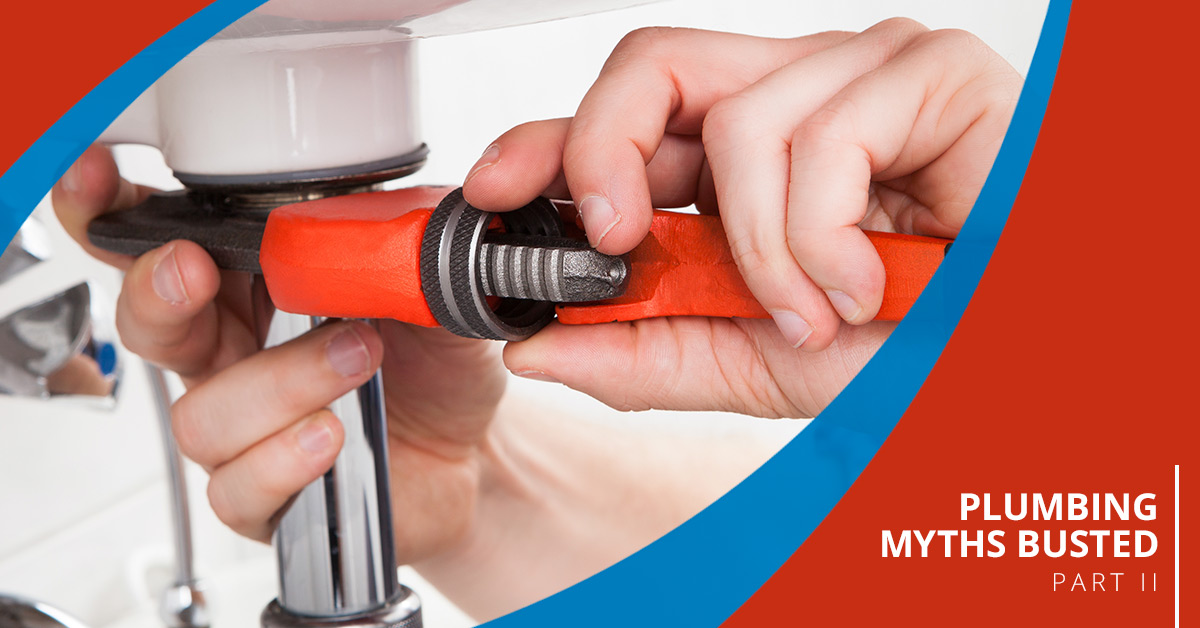Can you really flush wipes down the toilet? Will using hot water allow you to pour grease down your sink? There are many myths in the plumbing industry, and it’s not always easy to know where to turn for answers. We examined and clarified a few common plumbing myths you may have heard in a previous post, and in today’s post, we’ll continue to examine some of the most common plumbing myths we’ve heard over the years.
If you need residential plumbing of any kind, then schedule an appointment with The Great Plumbing Co. through our website!
Common Plumbing Myths
A Leaky Faucet Is No Big Deal
You’ve heard your faucet leaking throughout the day, but it’s a slow drip that probably isn’t raising your utility bills by much, right? While a leaky faucet probably isn’t going to break the bank, unresolved drips will cost you a significant amount of money over a long period of time. Moreover, leaky faucets are one of the leading causes of water waste. In the United States, for instance, the average untreated leak is estimated to waste up to 10,000 gallons of water every year. As a nation, it’s estimated that roughly 1 trillion gallons are wasted due to leaks. While Canada’s population is much smaller, we can expect the figures to be proportional. Give us a call or schedule a residential plumbing appointment if you have a leak that needs to be fixed.
Cat Litter Is Flushable
Many litter manufacturers claim that their litter is flushable, but it’s best to throw your cat’s litter out with the rest of your waste. Many modern toilets use less water than their older counterparts, meaning that they may not have enough water to transport the litter all the way through the pipes. Further, cat fecal matter isn’t exactly the softest material around. It dehydrates within a matter of days, and if you’re not scooping multiple times per day, then it’s likely to become stuck in your pipes.
If this isn’t enough to convince you, then consider the fact that cat waste sometimes contains the parasite Toxoplasma gondii. This parasite is one of the most common in the world, and it can cause toxoplasmosis, a flu-like disease that can lead to serious complications. Water treatment facilities have become more and more effective in recent years, but many are still not able to fully filter out every contaminant. Keep yourself and your fellow Canadians safe by disposing of your kitty litter elsewhere!
Letting Bleach Sit Is Fine
Bleach is a common chemical used to clean toilets, but letting it sit for too long can corrode your toilet and your pipes. If you’re going to use bleach to clean your toilet, then let it sit for no longer than 10 minutes before you begin cleaning. Letting it sit for any longer won’t increase its effectiveness, but it can slowly damage your porcelain.
All Plumbers Have Similar Skills
This myth couldn’t be further from the truth! If you’re relying on someone for residential plumbing in Toronto, you need to ensure that you’re choosing a plumber with the skills to get the job done correctly the first time around. At The Great Plumbing Co., we’re proud to have been in the industry for nearly three decades. We’re known for quality, integrity, and fast service, but don’t take our word for it — read our reviews for yourself!
We’ll keep revisiting this topic in future posts, so be sure to keep an eye on our blog page. If you need residential plumbing in Toronto or any of the surrounding areas
, then get in touch with The Great Plumbing Co. We can help you with kitchen, bathroom plumbing, and so much more!







